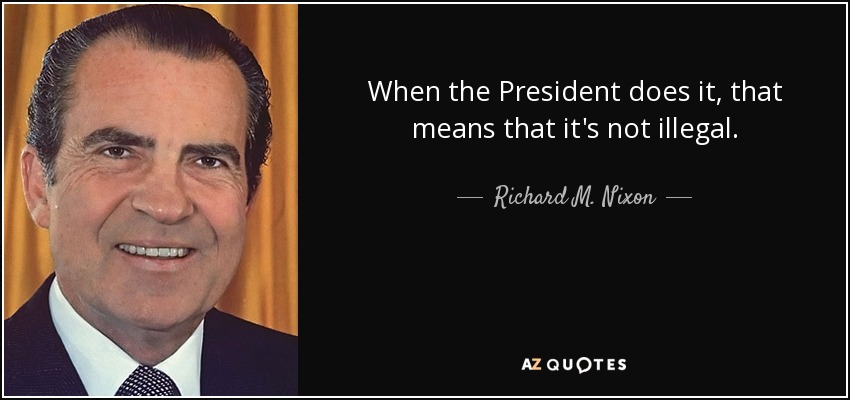(The Guardian) Court issues decision in Trump immunity case
The supreme court has issued its decision on whether Donald Trump is immune from criminal prosecution for actions taken while he was in the White House.
Court finds presidents entitled to 'absolute immunity' from prosecution for official acts
The supreme court holds that a former president has absolute immunity for his core constitutional powers. The decision fell along party lines, with six conservative justices ruling against three liberal ones.
But the court finds that former presidents are not entitled to immunity from prosecution for actions taken in a private capacity.
Writing the court’s opinion, Chief Justice John Roberts says: Under our constitutional structure of separated powers, the nature of Presidential power entitles a former President to absolute immunity from criminal prosecution for actions within his conclusive and preclusive constitutional authority. And he is entitled to at least presumptive immunity from prosecution for all his official acts. There is no immunity for unofficial acts.
Court finds presidents not entitled to immunity for unofficial acts
Chief Justice John Roberts, writing the court’s opinion, says: This case poses a question of lasting significance: When may a former President be prosecuted for official acts taken during his Presidency? In answering that question, unlike the political branches and the public at large, the Court cannot afford to fixate exclusively, or even primarily, on present exigencies. Enduring separation of powers principles guide our decision in this case. The President enjoys no immunity for his unofficial acts, and not everything the President does is official. The President is not above the law. But under our system of separated powers, the President may not be prosecuted for exercising his core constitutional powers, and he is entitled to at least presumptive immunity from prosecution for his official acts. That immunity applies equally to all occupants of the Oval Office.
The supreme court has issued its decision on whether Donald Trump is immune from criminal prosecution for actions taken while he was in the White House.
Court finds presidents entitled to 'absolute immunity' from prosecution for official acts
The supreme court holds that a former president has absolute immunity for his core constitutional powers. The decision fell along party lines, with six conservative justices ruling against three liberal ones.
But the court finds that former presidents are not entitled to immunity from prosecution for actions taken in a private capacity.
Writing the court’s opinion, Chief Justice John Roberts says: Under our constitutional structure of separated powers, the nature of Presidential power entitles a former President to absolute immunity from criminal prosecution for actions within his conclusive and preclusive constitutional authority. And he is entitled to at least presumptive immunity from prosecution for all his official acts. There is no immunity for unofficial acts.
Court finds presidents not entitled to immunity for unofficial acts
Chief Justice John Roberts, writing the court’s opinion, says: This case poses a question of lasting significance: When may a former President be prosecuted for official acts taken during his Presidency? In answering that question, unlike the political branches and the public at large, the Court cannot afford to fixate exclusively, or even primarily, on present exigencies. Enduring separation of powers principles guide our decision in this case. The President enjoys no immunity for his unofficial acts, and not everything the President does is official. The President is not above the law. But under our system of separated powers, the President may not be prosecuted for exercising his core constitutional powers, and he is entitled to at least presumptive immunity from prosecution for his official acts. That immunity applies equally to all occupants of the Oval Office.

